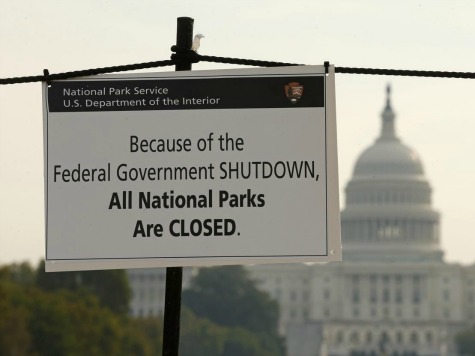
“Folly is a greater enemy of the good than evil.”
Deitrich Bonhoeffer
As the annual Conservative Political Action Conference opens this week in Washington, a rival conference organized by conservative activists like Stephen K. Bannon, executive chairman of Breitbart News, is being set up at a hotel across the street. “They are calling it the Uninvited,” The New York Times reports, “and it will feature speakers like Phyllis Schlafly and Representative Louie Gohmert of Texas, who are popular with the grass roots but not on the CPAC agenda.”
Sorting out the different political threads which comprise the conservative rainbow is beyond the scope of Washington and Wall Street, but this week let’s talk about conservatives and economic policy, an area where we all ought to agree on basic principles. From Tea Party activists to establishment Republicans, increased growth, lower taxes and less government are the core values we all share – at least in theory.
To this Reagan-Kemp Republican, the Tea Party represents a political reaction against the dominance of big government corporate statism which has controlled American politics since the Great Depression and the New Deal. The components of the Tea Party agenda include devotion to small government and civil liberties, both sound policy planks, but the thinking of the Tea Party on fiscal matters is decidedly angry and self-destructive.
The only thing worse than the idiotic proposals made by Treasury Secretary Henry Paulson during the 2008 financial crisis, when the former CEO of Goldman Sachs single handedly brought the financial markets to the brink of 1930s-style meltdown, was the efforts by the Tea Party to have the U.S. default on its debt. Last month, Senator Ted Cruz (R-TX) attempted to prevent the Senate from passing an increase in the debt ceiling via a filibuster.
Why would a rising group in American politics think that it can succeed by defaulting on U.S. obligations, thereby destroying the Rule of Law? For several decades, luminaries such as Grover Norquist, founder of Americans for Tax Reform, have advanced the idea that Washington should be starved of revenue by refusing to increase taxes to limit the growth of government. But since Americans naturally like to receive government benefits without paying for them via taxes, this strategy has failed miserably.
Today, government spending is a larger portion of GDP than ever before, and the total amount of federal debt is now measured in the trillions of dollars. So the natural evolution of the Republican strategy of fiscal starvation is to threaten debt default. In 2011, Tea Party members, with support of the second ranking Republican in the U.S. House of Representatives, actually said that they would force the U.S. to default on its debt.
Some GOP leaders also tried to intimidate the Fed into a less active position, believing, as they do, that the central bank is facilitating the growth of government in Washington. While the Fed is concerned, and at times obsessed, with preserving the ability of the Treasury to borrow, the Republican view of the role of the central bank hovers somewhere around the second grade level. When the Fed made clear its intention not to cower to those threats, the stock market soared. Credit spreads narrowed. Conservatives should take note of this fact.
After the U.S. government’s fiscal 2013 year came to a close, Republicans in Congress again aligned themselves with a Tea Party demand and forced the U.S. government to shut down. Worse yet, at least for a while it appeared the Tea Party might actually push the GOP to commit political suicide by forcing the U.S. to default. The target of this extortion was, at first, the Affordable Health Care Act. But the whole effort proved to be a farce.
Again, outmaneuvered at the ballot box and even on the floor of the House, the Republicans decided to try political terrorism. The results were appalling for the GOP and the Tea Party. The 2013 “extortion” was so absurd that markets reacted not at all. In simple terms, the market dismissed the Tea Party extortion for what it was, namely a ridiculous display.
The 2011 battle proved that disruption of responsible governance can generate a large, negative, and instantly-demonstrable impact on markets. The 2013 “battle” proved that investors and responsible leaders recognize political lunacy. They rose above the clamor of competing “talking heads” and ignored the ravings of the Tea Party.
The 2013 crisis ended when GOP House leaders agreed with a Senate proposal to end the shutdown and continue paying obligations Congress had already approved. The final tally showed 80 GOP representatives and more than 40 GOP senators joined with the Democrats in both Houses to remove the threat of a new financial crisis.
No conservative with even a rudimentary knowledge of finance and/or compassion for our citizens would knowingly use a threat of default to support any political agenda. The “weapon” of default must be banned. If Republicans want to reduce the size of government or repeal the Affordable Care Act, then they need to make that case to the voters and win the mandate for such policies on Election Day.
Back in 2012, John Nolte wrote that “Republicans Must Learn How to Speak ‘Jack Kemp’ Again.” Kemp famously said, “It is not enough to be against something; you have to tell people what you are for.” Politicians like Ted Cruz need to understand that fear, coercion, and obstruction are not going to help Republicans win a majority in Congress.
Talk about creating jobs, cutting taxes, and reducing the size of government, and you will not only attract voters but also win the approval of the financial markets. Simple test: If your proposals make stock prices rise and bond spreads shrink, then you know that you are on the right track. Any Republican member of Congress who does not understand any of this, please call me.

COMMENTS
Please let us know if you're having issues with commenting.